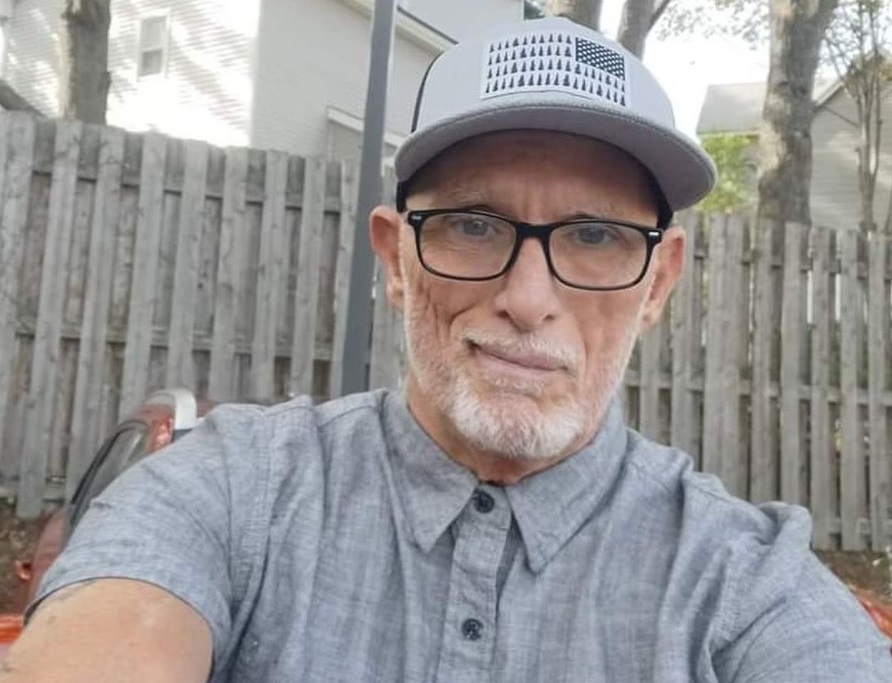BOSTON (MA)
Boston Globe
April 18, 2023
By Kevin Cullen
[Photo above: Carmine A. Solimini Jr. is studying to become a licensed alcohol and drug counselor. Photo courtesy Carmine A. Solimini Jr.]
Carmine A. Solimini Jr. was sexually abused by a priest in Somerville when he was a boy and suffered in silence for more than a half century. At 65, he has found his voice, and a measure of peace.
Carmine A. Solimini Jr. was born on Prince Street in the North End, just down the street from the Mafia headquarters.
His father had a fruit stand in Haymarket, but he eventually figured out his dad’s main source of income was from bookmaking. His father wasn’t a wiseguy, but as a bookie his dad worked for them, in both the North End and Somerville.
In 1965, when he was 7, Carmine’s family moved to Somerville and he enrolled at St. Benedict’s School.
One day, he stole a bag of potato chips from a Sunnyhurst Farms store. His mother was horrified. She ordered him to confess his transgression to a priest at St. Benedict’s.
The Rev. Patrick Tague, one of the many sexual predators in Roman collars who were later exposed and punished,must have gauged the vulnerability in the little boy’s voice.
Solimini said Tague sexually abused him in the confessional. Twice.
Within weeks, Tague was gone, transferred to another parish without explanation.
The young victim he left behind felt trapped. He was too scared to receive Communion.
“I was crying, the nuns were hitting me, to make me go up,” he said. “I was afraid of God. That priest weaponized God against me.”
His fear and isolation grew as he realized no one was going to hold Tague accountable. His father’s ties to organized crime made it even harder. He was caught between two institutions that demanded secrecy.
“My dad was a connected guy, and something like this coming out was going to embarrass the family,” he said. “I was told to keep quiet. And I did.”
He grew lonely and developed a stutter.
“I started to stutter severely because of this forced silence,” he said. “I could not be heard.”
His stutter attracted bullies and relentless teasing.
He began drinking and drugging. He spent more than 20 years on the streets of Boston, “a homeless heroin addict.”
His life changed when he got sober and began to confront the demons he had carried, like a heavy chain, since childhood. He remembered there was a lawyer, Mitchell Garabedian, who represented many victims of clergy sexual abuse in the early 2000s. So he picked up the phone and called Garabedian.
“I told Mitch my story,” he said. “He believed me, and in doing so he saved my life and changed my life.”
The Archdiocese of Boston believed him, too. Tague left ministry in the late 1960s and was accused of abusing boys at a state-run juvenile detention facility. He was dismissed from the priesthood in 2006, after the archdiocese investigated him. He died in 2013.
After filing his lawsuit against the archdiocese, Solimini found the process, speaking very plainly about what was done to him, what it did to him, cathartic.
“I was heard,” he said. “They weren’t aggressive. I’m glad I did it because it convinced me I needed to speak up publicly, to give voice to others who still suffer, who still haven’t told their story.”
Sixteen months ago, he received a five-figure settlement, which seems like nothing, given the life-long damage inflicted on him. But Solimini said it was never about the money.
“The importance of the money is only that it is an acknowledgment that this happened,” he said. “Cardinal O’Malley sent me a letter apologizing. That meant a lot to me.”
Garabedian said while attention about clergy sexual abuse has faded, victims like Solimini continue to come forward.
“I’m getting calls from people between 80 and 90 years old now,” he said. “A lot of these victims didn’t want to hurt their family members. Some of them waited until family members died before contacting me.”
Since getting sober, Solimini has worked in mental health care. He’s studying to become a licensed alcohol and drug counselor.
“I have lived an incredibly difficult, painful life, but today I’m better, not whole, but better,” he said. “I just hope that my story can give hope to those who still suffer in silence. I hope they find their voice.”
Kevin Cullen is a Globe columnist. He can be reached at kevin.cullen@globe.com.

